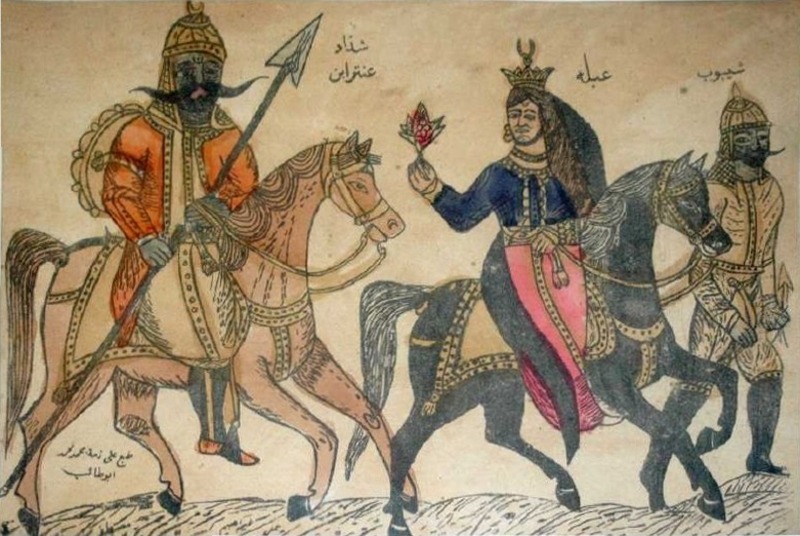Today in my chivalry seminar we discussed the three most important accounts the Combat of 30 as found in my book of the same name. I started out by asking a general question about whether this was a chivalric deed of arms. One of my students launched into an enthusiastic affirmation. And you know what? He was taken by exactly the features of the deed that I think people of the mid-14th century most appreciated, in other words that it was a fair fight and no one ran away.
Just goes to show you.
A few days back another chivalric story swam into my ken, thanks to Phil Paine.
It is the Romance of Antar, derived from the poet Antar of the time of the Prophet, whose original poems were among the hanged poems in the Kaaba at Mecca. Students in my Islamic civilization course know Antar. Here's what Phil has to say about the later Romance of Antar and its significance.
Early Arabic literature is not well-known in the English-speaking world, and some elements of it might surprise someone who is only familiar with the stuff from later periods. Among the earliest works in Classical Arabic are a number of tales that can only be called “chivalric romances”, which strongly resemble the sort of thing you would expect in Malory or Chrétien de Troyes. What would most surprise a modern reader is the treatment of female characters.And what is that treatment, Mr. Bones?
There is much more and Phil gives an extensive summary.Here are some remarkable passages:Zahir continued his journey, until he reached the Saad tribe, when he dismounted from his horse. He was cordially received and was pressed to take up his abode with them. His wife was at that time soon to become a mother, and he said to her: “If a son is given to us, he will be right welcome ; but if it be a daughter, conceal her sex and let people think we have a male child, so that my brother may have no reason to crow over us.” When her time came Zahir’s wife brought into the world a daughter. They agreed that her name should be actually Djaida, but that publicly she should be known as Djonder, that people might take her for a boy. In order to promote this belief, they kept up feasting and entertainment early and late for many days.
About the same time Moharib, the other brother, had a son born to him, whom he named Khaled (The Eternal). He chose this name in gratitude to God, because, since his brother’s departure, his affairs had prospered well.
The two children eventually reached full age, and their renown was widespread among the Arabs. Zahir had taught his daughter to ride on horseback, and had trained her in all the accomplishments fitting to a warrior bold and daring. He accustomed her to the severest toils, and the most perilous enterprises. When he went to war, he put her among the other Arabs of the tribe, and in the midst of these horsemen she soon took her rank as one of the most valiant of them. Thus it came to pass that she eclipsed all her comrades, and would even attack the lions in their dens. At last her name became an object of terror; when she had overcome a champion she never failed to cry out : “I am Djonder, son of Zahir, horseman of the tribes.”

